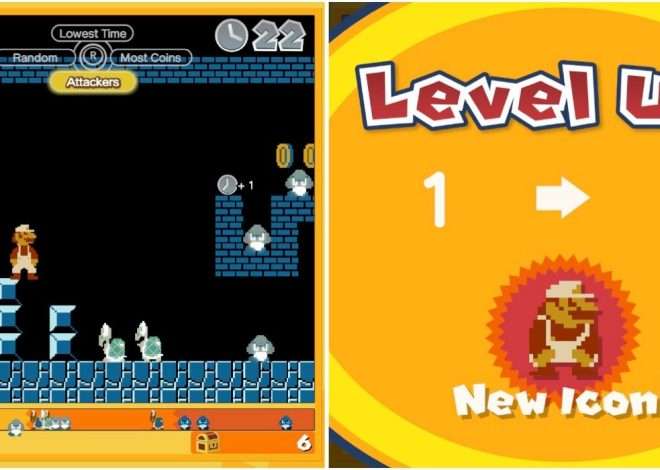The Benefits of NFT Game Development
The gaming industry is undergoing a significant transformation. The integration of Non-Fungible Tokens (NFTs) is reshaping the landscape, offering developers and players alike a wealth of new opportunities. NFT game development presents a compelling alternative to traditional video game development, boasting several key advantages that are revolutionizing the way games are created, distributed, and experienced. This article will delve into the numerous benefits of leveraging NFT technology in game development, highlighting why it’s becoming an increasingly attractive option for studios and players.
Enhanced Player Ownership and Engagement
One of the most significant benefits of NFT game development lies in its ability to grant players true ownership of in-game assets. Unlike traditional games where items are merely licensed, NFTs allow players to own unique digital items as verifiable tokens on a blockchain. This fosters a sense of ownership and allows players to trade, sell, or even rent their assets, creating a vibrant in-game economy. This direct ownership boosts player engagement as they feel a deeper connection to their in-game progress and possessions. The ability to profit from their in-game achievements further incentivizes players and encourages long-term participation;
Increased Player Retention
The economic incentives inherent in NFT games significantly improve player retention rates. Traditional games often struggle to keep players engaged in the long term, as the reward system is typically limited to cosmetic items or temporary boosts. NFT games, however, offer players a tangible financial incentive to continue playing. The potential to earn real-world value from their in-game assets keeps players invested and returning for more. This creates a sustainable player base, benefiting both developers and the overall health of the game ecosystem.
New Revenue Streams for Developers
NFT game development unlocks exciting new revenue streams for developers. Beyond the initial sale of the game, developers can earn royalties on every subsequent sale of NFTs within their game. This creates a recurring revenue model that’s far more sustainable than the traditional model reliant on initial game sales and in-app purchases. Moreover, developers can create and sell unique NFT collections, expanding their revenue opportunities beyond the core gameplay experience. The potential for passive income is a significant draw for developers considering the transition to NFT-based games.
Monetization Beyond Microtransactions
Traditional games often rely heavily on microtransactions, which can sometimes feel exploitative to players. NFT games offer a more transparent and player-centric approach to monetization. While in-app purchases can still be a part of the model, the focus shifts to the value of the NFTs themselves. Players are not just buying temporary boosts; they are acquiring assets with inherent value that can be traded and sold, creating a fairer and more rewarding gaming experience.
Enhanced Game Economy and Scarcity
NFTs introduce a concept of scarcity to in-game assets, which is a significant departure from traditional games where items can be easily duplicated. This scarcity drives demand and value, creating a more robust and dynamic in-game economy. Limited edition NFTs, rare items, and exclusive in-game content can be created and distributed, adding an extra layer of excitement and competition. This dynamic economy keeps players engaged and incentivizes them to participate actively in the game’s ecosystem.
Creating Real-World Value for Virtual Assets
The ability to convert virtual assets into real-world value is a revolutionary aspect of NFT game development. Players can now sell their in-game achievements and possessions for cryptocurrency, which can then be exchanged for fiat currency. This creates a tangible connection between the virtual and real worlds, fundamentally changing the way players interact with games and the value they perceive in their gaming experience. This real-world value further enhances player engagement and retention.
Improved Transparency and Security
Blockchain technology, the underlying infrastructure of NFTs, provides a secure and transparent environment for in-game transactions. Every transaction is recorded on a public ledger, ensuring accountability and preventing fraud. This transparency builds trust between players and developers, fostering a healthier and more reliable gaming ecosystem. The immutable nature of blockchain technology guarantees the authenticity and ownership of NFTs, creating a secure and reliable platform for players to trade and manage their digital assets.
Reduced Risk of Fraud and Cheating
The inherent security of blockchain significantly reduces the risk of fraud and cheating; The tamper-proof nature of the ledger makes it extremely difficult to manipulate or counterfeit NFTs. This enhances the integrity of the game and builds player confidence. Players can be assured that their assets are safe and secure, which is a crucial factor in fostering a thriving and sustainable game ecosystem. The transparency and security offered by blockchain technology are key differentiators for NFT game development.
Community Building and Interaction
NFT games often foster strong communities of players who are invested in the success of the game and the value of their assets; The shared ownership of digital assets creates a sense of camaraderie and shared purpose. Players are more likely to interact with each other, participate in community events, and contribute to the overall development of the game. This increased community engagement strengthens the game’s longevity and helps create a more vibrant and engaging gaming experience.
- Increased player-to-player interaction through trading and collaboration.
- Stronger sense of community ownership and shared responsibility.
- Enhanced opportunities for player feedback and involvement in game development.
Challenges and Considerations in NFT Game Development
While NFT game development offers numerous benefits, it’s important to acknowledge the challenges involved. The volatility of cryptocurrency markets can impact the value of in-game assets. Regulation surrounding NFTs and blockchain technology is still evolving, creating uncertainty for developers and players. Furthermore, the technical complexity of developing and deploying NFT games can be a significant barrier to entry for some studios.
- Understanding and managing the complexities of blockchain technology.
- Navigating the legal and regulatory landscape surrounding NFTs.
- Mitigating the risks associated with cryptocurrency market volatility.
Despite these challenges, the potential benefits of NFT game development are compelling. The enhanced player ownership, new revenue streams, and improved security are transforming the gaming landscape, offering both developers and players a more engaging and rewarding experience. As the technology matures and the regulatory framework evolves, NFT games are poised to become a dominant force in the gaming industry.
The future of gaming is undeniably intertwined with the evolution of NFT technology. The benefits are clear: increased player engagement, innovative monetization models, and enhanced security. While challenges remain, the potential rewards far outweigh the risks, making NFT game development a compelling and promising avenue for the future of interactive entertainment. The integration of NFTs isn’t just a trend; it’s a fundamental shift in how we interact with and experience digital games; This paradigm shift offers a more equitable and rewarding gaming experience for all involved. The potential for growth and innovation is vast, promising an exciting and transformative future for the gaming industry.



